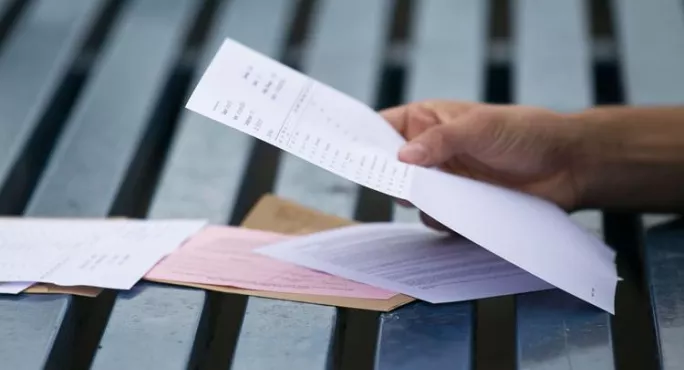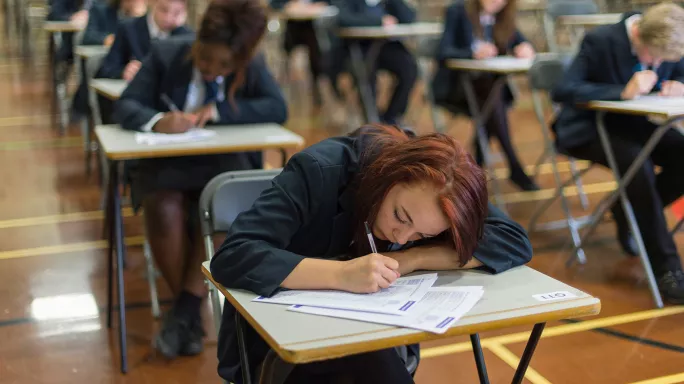
GCSEs: how to recover from a poor set of mocks
Share
GCSEs: how to recover from a poor set of mocks
You have the marked papers. You’ve consulted the grade boundaries. You’ve gone for a long walk around the science block, kicked the recycling bin and ditched your mid-morning banana in favour of a bacon butty.
Only one word can describe your class’ mock results: dire.
Quick read: The head of AQA maths gives some tips on the GCSEs
Quick listen: Professor Tamsin Ford on mental health and young people
Want more articles like this? Join our Tes Teaching and Learning Facebook group
The GCSEs are looming. What the hell are you going to do next?
The five stages of a teacher’s recovery from crap mock results...
1. Denial
Instinctively, you’ll want to question the marking. Which idiot only gave them three marks for that? Why use that brutal November 2017 paper? Who dreamt up this Draconian mark scheme? A natural defence mechanism, denial helps us through the initial post-exam shock.
How to move on: ask an experienced colleague to give your scripts the once over. Spend a bit of time moderating the papers, and slagging off the principal examiner. Soon you’ll accept the blunt truth that your class have just…underperformed badly.
This leads to...
2. Anger
It’s time to lash out and play the blame game. (“What a feckless bunch. They haven’t listened to a bloody word I’ve said!”)
As long as anger is released in a private conversation with a trusted friend then it will provide a useful outlet for your inevitable frustration.
But telling the class they’re a waste of space and are destined to fail isn’t going to help, no matter how tempting it may be.
How to move on: after the fury, hold a dispassionate post-mortem. Separate the disorganised from the idle, and the near-misses from the nowhere-nears. Insist that those who couldn’t be bothered resit the paper. Show you won’t stand for them disrespecting important practice exams.
But you’ll also need to accept your own responsibility. What didn’t you teach well? How might you have explained and modelled things more effectively?
3. Bargaining
Welcome to the “what if?” period of post-mock scrutiny. By reflecting on the specific root causes of mediocre results, you can put things in perspective. Considering what might have been helps you to adjust to the reality of the situation and spy a kind of hope for the summer exams.
How to move on: find nuggets of comfort. She didn’t answer the 16-marker, yet still managed grade 3; that means if we can work on her timings, grade 5 is a distinct possibility. Before you know it, a bright light of realistic optimism will shine through the brooding gloom.
But you’ll still need to prepare for...
4. Depression
Despite your positive thoughts, you’ll still have to deal with the fallout. You’ve got the class first thing Monday. They’ll be desperate to know how they’ve got on.
What if parents start pointing the finger? What if SLT begin breathing down my whiteboard?
I might as well go stack shelves in Lidl…
How to move on: according to the playwright Anton Chekhov - who experienced more than his share of failure and rejection - “the teacher must be an actor”. A calm facade that suppresses outward signs of concern is an essential tool for dealing with poor results. Tell them you’re not remotely worried. If they work hard on their weaknesses, they’ll do much better next time.
5: Acceptance
While you’ll forever bear the scars of the Great Mock Exam Catastrophe, you can now move forward. In this planning stage, reflection, analysis, optimism and reassurance coalesce into a concrete improvement plan.
How to move on: spend time giving the most effective feedback possible. Focus on common misconceptions and errors, showing them exactly what went wrong.
Crucially, you need to orchestrate improvement time so that it allows pupils to taste success. Ultimately, this will act as a much better motivator - for your pupils and you - than dwelling on their dodgy results.
Mark Roberts is an assistant headteacher in the South West of England
Further reading
- GCSEs: five pitfalls to avoid
- How this teacher got a glut of Grade 9s
- Are mocks really helpful in schools?





